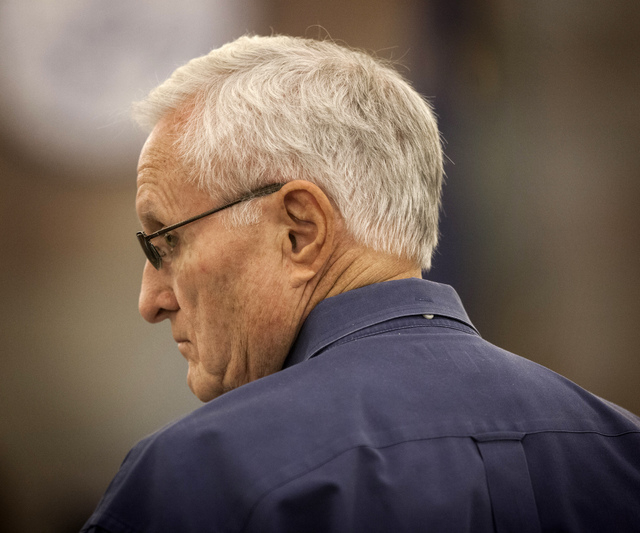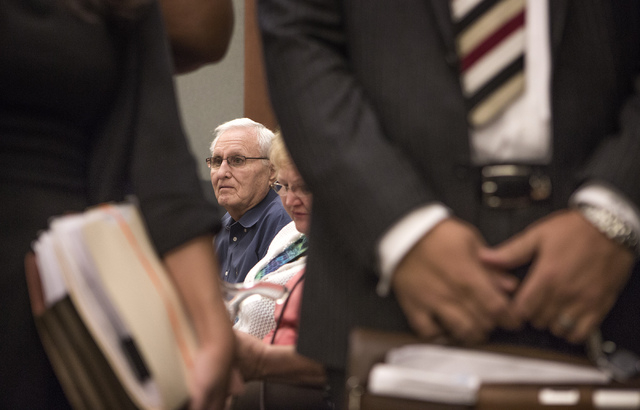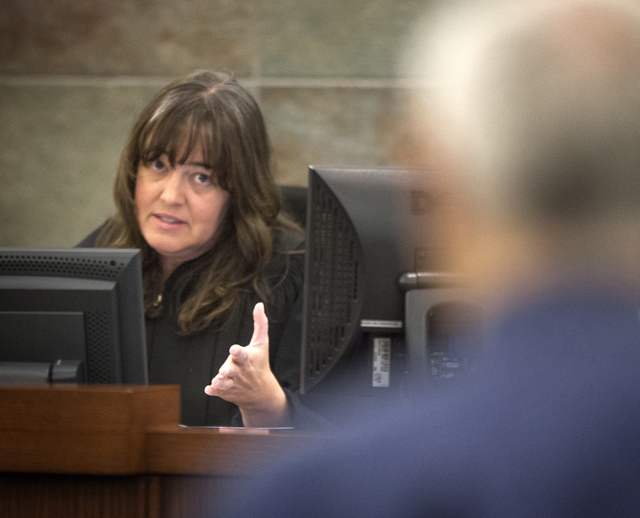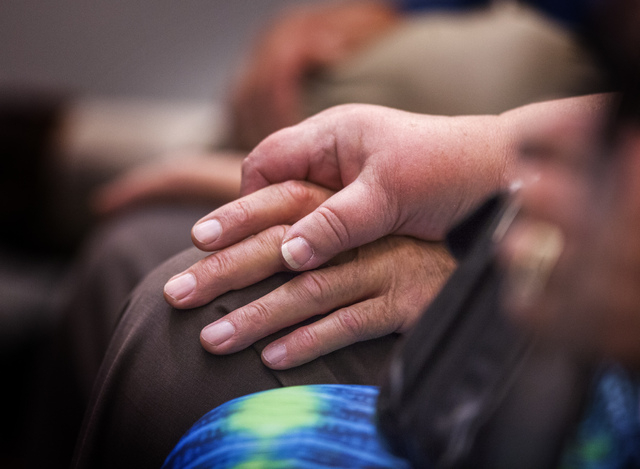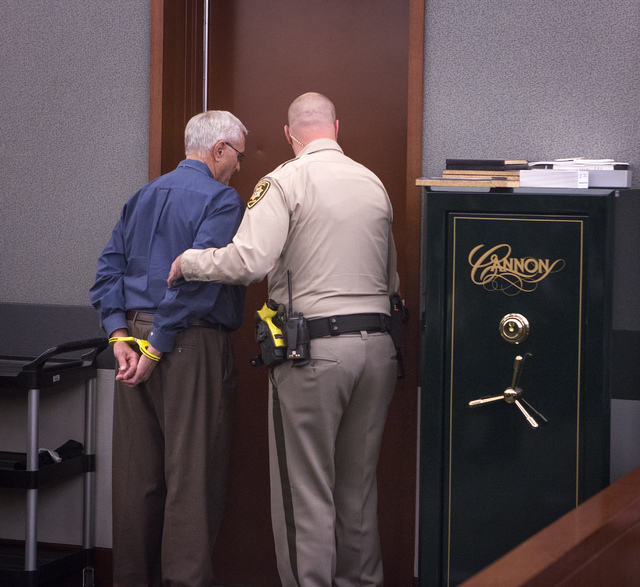Nurse anesthetist sentenced to prison for hepatitis C outbreak
Nurse anesthetist Keith Mathahs was sentenced to 28 to 72 months in prison Thursday for his role in the 2007 hepatitis C outbreak.
Marshals handcuffed Mathahs and led him out of the courtroom after District Judge Valerie Adair handed out the sentence.
“This is a tragic situation all the way around,” Adair said from the bench. “I think Mr. Mathahs was aware of the risk and he did it anyway for whatever reason.”
Mathahs, 77, pleaded guilty in December to five criminal counts, including criminal neglect of patients resulting in death, insurance fraud and conspiracy to commit racketeering.
He testified for prosecutors earlier this year at the trial of Dr. Dipak Desai, the central figure in the hepatitis outbreak, and fellow nurse anesthetist Ronald Lakeman. The two nurses worked for Desai at his main clinic, the Endoscopy Center of Southern Nevada on Shadow Lane.
A jury in July found Desai, 63, guilty of all 27 criminal counts related to the outbreak, including second-degree murder in the death of an infected patient, Rodolfo Meana, 77. Lakeman, 66, was acquitted on the murder charge and other charges tied to Meana’s April 2012 death but found guilty of 16 other counts.
Prosecutors had alleged that Lakeman was part of the conspiracy that led to Meana’s death, even though he didn’t participate in his colonoscopy. Mathahs was involved in Meana’s procedure.
Last week, Adair sentenced Desai to life in prison with the possibility of parole after 18 years and ordered Lakeman to spend eight to 21 years behind bars.
In court, Mathahs read a brief statement to Adair apologizing for his actions and pleading for probation so he could spend his remaining years with his longtime wife caring for his disabled 50-year-old daughter, who has multiple sclerosis.
“Your honor, I have never been in trouble with the law,” Mathahs said. “I have always been a law-abiding citizen.”
Aside from what happened at Desai’s clinic, Mathahs said, he has had the interests of his patients at heart throughout his health care career, which spanned more than 50 years.
Mathahs also told Adair that he has a variety of health problems — including diabetes, heart disease, high blood pressure, arthritis and deterioration of his kidneys — that could be aggravated in prison.
Chief Deputy District Attorney Michael Staudaher urged Adair to follow the plea agreement, which called for 28 to 72 months behind bars.
Staudaher said Mathahs wasn’t the greatest witness for prosecutors during the trial, often waffling back and forth on the stand.
His defense lawyer, Michael Cristalli, countered that Mathahs was “truthful and forthright” and, unlike his co-defendants, accepted responsibility for what he did.
With his $50,000 part-time salary, Mathahs never profited from Desai’s “penny-pinching” business tactics that prosecutors alleged led to the hepatitis outbreak, Cristalli said.
Others involved in the hepatitis outbreak, some of them “profiteers” in positions of supervision, got passes from prosecutors and weren’t indicted, Cristalli explained.
By pleading guilty and cooperating, Mathahs avoided a stiffer punishment, primarily on the murder charge, which prosecutors dismissed against him.
The charges in the high-profile criminal case focused on the hepatitis C infections of Meana and six other patients at the endoscopy center in 2007.
A second infected patient, Michael Washington, 73, died in August, and the district attorney’s office is weighing whether to pursue additional murder charges against Desai and Lakeman. Mathahs did not participate in Washington’s colonoscopy at the clinic.
During the trial, prosecutors contended that unsafe injection practices involving the anesthetic propofol led to the outbreak. The combination of double-dipping syringes into propofol bottles used on multiple patients spread the virus from source patients infected with hepatitis C on two different dates in 2007, prosecutors contended.
The criminal investigation was one of the largest and most complicated undertaken by Las Vegas police.
It was launched in March 2008 after health officials disclosed the outbreak and urged about 64,000 patients to get tested for blood-borne viruses.



